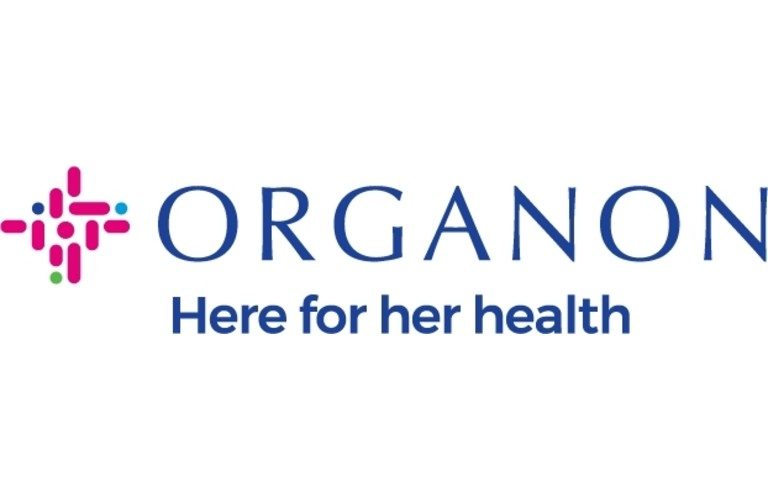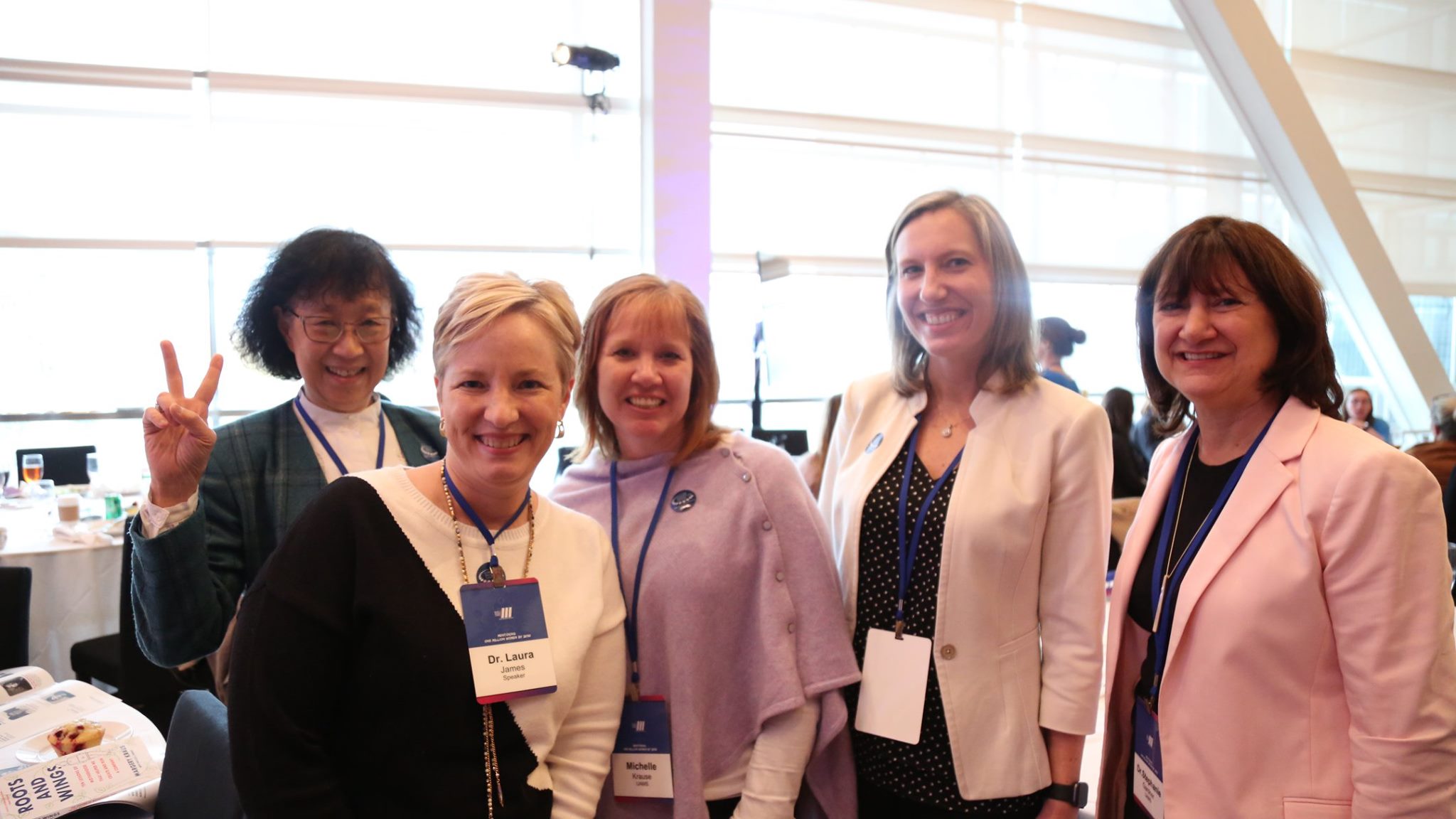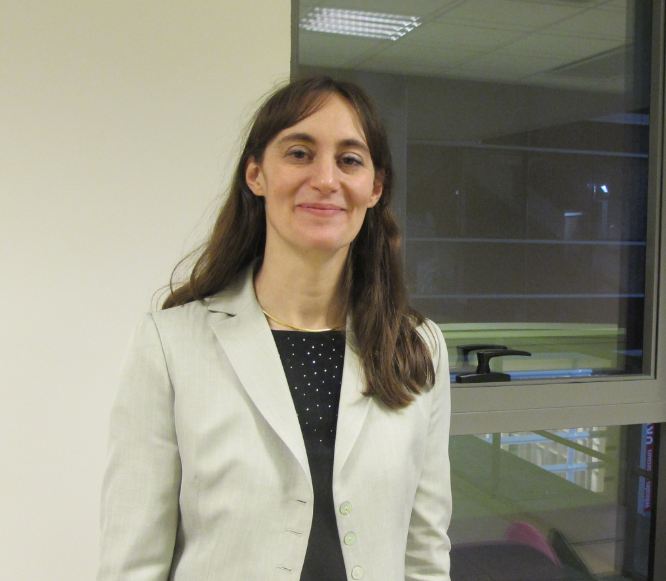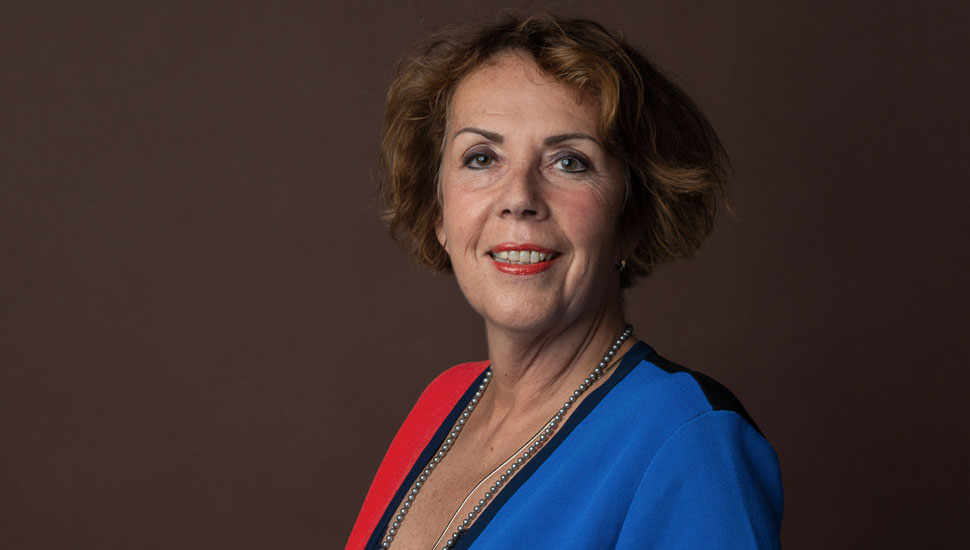Marleen Temmerman is honored by World Woman Hour, in collaboration with Organon, for her lifetime of leadership across many areas of women’s health. It is rare to see anyone in any field making such a broad range of contributions. A medical doctor and professor in obstetrics and gynecology, Marleen is also a world-class expert in public health policies. She has published over 500 influential articles and books about women’s health, while personally overseeing the birth of babies to approximately 18,000 women … and that is far from all.
In Kenya, where she has spent key parts of her career, Marleen did pioneering research on HIV/AIDS with a focus on how the virus impacts women and childbearing. In Belgium, her native country, she founded the Ghent University International Centre for Reproductive Health (which now has branches worldwide), and served as a Senator in the national Parliament. Marleen also held a high post at the World Health Organization, directing WHO’s global programs in Reproductive Health and Research. She has been back in Kenya since 2016, at the Aga Khan University in Nairobi, where she heads the Centre of Excellence in Women and Child Health.

That’s quite a track record for someone who, in her university days, had a professor tell her that a woman shouldn’t study to be a gynecologist. As Marleen recollects, “He said, ‘You will have a family, who will take care of the children? Why don’t you do something you can do from 9 to 12 so that you can dedicate your time to your family?” As it turned out, Marleen was able to be a wife and a mother while also forging a remarkable career. She believes that women’s health and women’s equity must go hand-in-hand — a view she advocates with good humor but with firm conviction. Here are excerpts from her interview with World Woman Hour.
Q: Could you tell us a little about your life’s journey and how you came to be where you are now?
Dr. Marleen Temmerman: As a young girl I was always interested in sharing things and asking questions. Why is there so much inequity? Why do some people have more than others? I was passionate about solidarity and fighting inequity and it actually became the Leitmotiv throughout my journey.
I wanted to go to the university, which was not often done by girls from the middle class back then in the seventies so I had to fight to convince my parents to allow me to go. Then later, after I finished my training in gynecology, I was intrigued not only by how best to care for the patient but also by health systems in operation so I undertook graduate studies in public health.
I was invited by a good friend, Professor Peter Piot [a renowned microbiologist], to work with him around a strange disease that had come up in the 1980s. He was looking for somebody to join a research team in Kenya. My dream had been to go to developing countries and there was a need to study this new disease, HIV/AIDS. The research question at that time was, can women be infected with the virus, and if so, can it have an impact on pregnancy and on the baby? I went to Kenya, together with my husband, and although we have lived in other places since then, we kept going back to Africa, to Kenya and Mozambique over the years. And now here we are again in Kenya, where I’m leading the research center in Women and Child Health.
Q: Why are you so passionate about solving problems for women, especially in health care?
Marleen: It’s really working with women in all aspects of life, throughout their life course—young children, adolescent girls, pregnancy, family planning, older women. And whether you look at it from a health perspective or a rights and equity perspective, there is still a lot to be done.
Think of the area of reproductive rights. Can you imagine that it was only in 1994, less than 30 years ago, when the world for the first time even agreed on the terminology of “reproductive rights”? On what it mean for a girl or a woman to have the right to decide how many children she wants, when, and with whom? It’s so basic. And yet 30 years ago we had to fight for it.
Even now, in many parts of the world—like here, where we live—for a lot of girls it’s only a dream.
So progress has been made, but a lot needs to be done. And that’s why every day I love to continue this work, along with many wonderful partners, allies, colleagues, and friends.
Q: It’s often said that women are disproportionately affected by health problems. Why is that so, and what are the solutions?
Marleen: When you look at sexually transmitted diseases, for example, it’s the women and girls who suffer more. STDs can lead to ascending infections and a lot of complications, including infertility or cervical cancer and other diseases that are treatable or preventable, but which are making a lot of victims in this part of the world. So it’s always the girls and women who are kind of badly treated—by nature, by society, by the rights and the agency they are able to have. Their health care is often provided by governments or religious groups limiting their access to health, education, and the ability to reach their full potential.
In many countries, education is still a problem. In Kenya, the new Constitution of 2010 includes that all children go to school. That has really had an impact, because now more girls are going to primary school and secondary school. They continue their education, they participate in the workforce, and that is the beginning of change. So, education and health are really key to achieving equity, and to the development of girls and women.
Q: Many times in your life you’ve had to fight to move forward with your career and your work. What have you learned about overcoming failures and setbacks?
Marleen: Falling down is not failure. It’s just a thing that happens. Failure is not standing up again. You just have to say OK, what can I learn from what happened, and how can I do better?
And not only “I,” but how can we do better? In order to change society, you cannot do it as an individual. You have to find your friends, your partners, your family, and think, how can we do it? An African proverb states “ it takes two to make a child and a village to raise a child” we are all part of that global village and together we can be the change!
To me, this is the most important point. It’s about us. How can we develop not only that one single woman or girl or boy, but do it together as a group, as a community? As a society, how can we do better?
Q: Can you share a story about “doing better” in this way?
Marleen: It’s not a fun story but I would like to tell it. When I first came to Kenya for my research, in the 1980s, I worked in public health maternity here in Nairobi Pumwani Maternity Hospital. I lost my heart in that place. We had about 80 to 100 deliveries a day, in very difficult conditions. At the time, I was pregnant myself, so you look at things a bit differently when that is the case. And I was confronted with a young girl, 14 years old, who died on arrival. She had been in labor in a slum area, without anyone taking care of her until finally, somebody brought her to the maternity ward. She had a ruptured uterus. The baby had passed on already and we couldn’t save the girl, either.
In my life I have done so many deliveries that I don’t remember them all. But unfortunately, I had 72 girls or women who died in my hands, so to speak: many from the complications of unsafe abortion, and many very young girls who should have enjoyed their childhood instead of getting pregnant. Those I will never forget. Of course, you can be sad about this. On the other hand, it has given me the motivation to say, “This cannot happen any longer.”
So, for many years, I have been trying to change the systems—and again, not alone. In that same maternity ward where the girl died, health care providers, nurses, doctors, and everyone has invested a lot. And after all these years, in this particular facility, care has improved a lot. We still see some women dying but thankfully less frequently. In the past, we had at least two or three babies every day who didn’t survive, and now that is the exception. As I said, we are making progress but there is still a long way to g
Marleen: We need more women leaders not only in health care but everywhere….
One of the biggest problems is that so many women are still dying in pregnancy, in childbirth, abortion, or postpartum. Maternal mortality, as we call it, is really an injustice for girls and women. They need good quality care, but it’s not only about the care. They also need the right to use the care. Like here in Kenya, we see so many teenage pregnancies, with very young adolescents. We need to work for the right to avoid being pregnant when you are 13. The right to access family planning, sexual education—the right to knowledge. So, it’s more than simply health care. It’s the whole picture of equity and rights that has to be interwoven with health care.
Q: What can all of us do to help?
Marleen: I think that all of us can be part of the change. If you believe that women and men are equal, that we have the same rights, then fighting for the same rights for all individuals is something that all of us should contribute to. Whenever you see injustice, or a negative situation, don’t turn away from it. Keep on fighting for a better world. For girls and women, men and boys.
Q: One last question. If you could be said to have a superpower, what is it?
Marleen: My superpower is multitasking. Being somebody who works in a group, in a community. And somebody who doesn’t give up. Who doesn’t take no for an answer!


















Excellent beat ! I wish to apprentice even as you amend your site, how could i subscribe for a blog website? The account aided me a acceptable deal. I have been a little bit acquainted of this your broadcast offered brilliant transparent idea
I see something truly special in this site.
Generally I don’t learn article on blogs, but I would like to say that this write-up very forced me to check out and do so! Your writing taste has been amazed me. Thank you, very nice post.